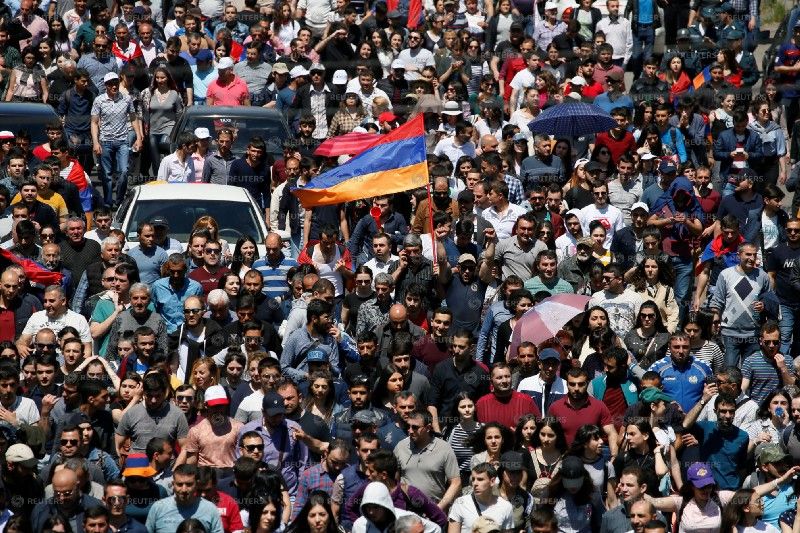For any country transitioning from autocracy toward representative democracy, there is a crucial boundary. On one side is a rigged system in which, with or without staged elections, ordinary people have no power to call their leaders to account. On the other are countries where citizens have proven, at least once, that popular protest can take down a government. This week, for the first time, Armenia crossed that line.
The story is familiar: Serzh Sargsyan served as president from 2008 until this spring. His critics say he did little to improve toxic relations with neighbors Turkey and Azerbaijan or ease a dangerous dependence on Russia. Ten percent of citizens have left the country. Nearly 30 percent still live below the poverty line.
But Sargsyan wasn’t done. He used a constitutional amendment to shift power to the office of prime minister and then persuaded parliament to appoint him to that job. Protesters filled the streets to reject this stunt and proved the police couldn’t make them go home. Now he’s out.
Armenia, like fellow former Soviet Republics Ukraine, Georgia, and Kyrgyzstan, has lots of problems. It’s easier to reject ideas than to build them, and nothing is solved simply by forcing Sargsyan to back down. But precedents like this force governments to care about public opinion in new ways.
In most of the former Soviet states, that day has not yet come.
